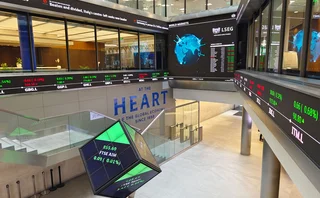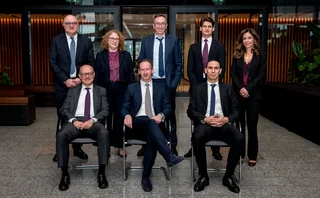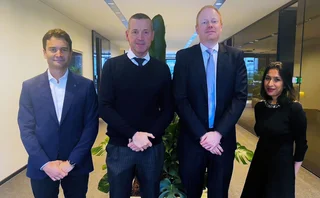
Hedging adviser of the year: Chatham Financial
Risk Awards 2020: Hedge accounting solution helps Freddie Mac tackle P&L swings from loan hedges

Back in 2015, the Federal Home Loan Mortgage Corporation, known as Freddie Mac, saw a series of multi-billion dollar mark-to-market losses in its derivatives portfolio – including a $4.2 billion loss, which pushed it $475 million into the red in the third quarter of that year.
For a government servicing entity that was taken into state hands in September 2008, this wasn’t a good look. And given that for years the entity has had to hand over any profits beyond a certain threshold back to the US Treasury, it didn’t have much of a capital base to withstand such hits.
The problem wasn’t the derivatives themselves, but the hedge accounting treatment. Obtaining hedge accounting for the loans is, in theory, fairly straightforward – it’s mainly interest rate swaps hedging mortgages – but it was the size and scale of Freddie Mac that was the problem. As Freddie Mac’s portfolio changes on a daily basis, each of the hedge relationships for the loans on their books needed to be documented individually every day in order to qualify for favourable accounting treatment.
The government-sponsored enterprise (GSE) had a programme in place already, but it was largely ineffective. This meant losses in the mark-to-market of the derivatives were hitting the profit and loss statement, but the opposing gains on the loan portfolio were not; a mismatch that was leading to wild earnings swings.
To tackle the problem, Freddie Mac turned to Chatham Financial for advice. The hedging adviser used its technology platform, ChathamDirect, in February 2017 to obtain hedge accounting for certain single-family mortgages hedged with interest rate swaps. Single-family mortgages make up around two-thirds of Freddie Mac’s total loan portfolio, and as a result, the GSE’s sensitivity to interest rates was instantly cut in half.
“No-one in the world had ever done hedge accounting on this scale before. An easy fix simply wasn’t available as Freddie needed a customised and extensive solution in order to get the best return on their investments when it came to hedge accounting,” says Amol Dhargalkar, head of Chatham’s global corporate group.
But this year Chatham took it one step further, updating its hedge accounting system and bringing the reduction all the way up to around 80%. More than one million pieces of loan data are now passed daily between Freddie and Chatham, allowing them to apply hedge accounting on up to two million loans per day.
The GSE’s losses in an adverse scenario of a 100-basis point fall in rates also went from $2.7 billion before hedge accounting to just $200 million after hedge accounting – a drop of 93%, according to Freddie’s December 2018 annual report.
“It’s just a massive reduction,” says Hassan Thalji, investments and capital markets chief financial officer at Freddie Mac. “This programme allowed us to better align our GAAP and economic results.”
“We had an aggressive timeline to implement hedge accounting, but Chatham helped us meet it by acting as true business partners. They understood our needs and timelines and responded accordingly. Chatham has deep hedge accounting expertise, and we were able to leverage it to meet our timelines,” Thalji adds.
No-one in the world had ever done hedge accounting on this scale before
Amol Dhargalkar, Chatham
Given Freddie’s success, other GSEs have indicated interest in applying the same hedging programme, says Chatham’s Dhargalkar.
A sovereign wealth fund had a different problem – it had its choice of funding and hedging options, but it wanted a way to find the best combination of both.

A longstanding client of Chatham’s, the two parties teamed up to create a tool that allows the fund to evaluate the quantitative and qualitative trade-offs of different hedging options and debt structures on a deal-by-deal basis.
“Essentially, we take a combination of hypothetical and historic environments to analyse what would happen to interest rates if those scenarios were to happen today,” says Andrew Thornfeldt, head of real estate investment banking at Chatham.
“That then enables us to evaluate different debt structures against one another and see how well a fixed rate loan with a five-year term performs against a floating rate loan that was swapped or partially swapped, or a five-year floater that has a cancellable swap or some other option product combined with a swap, for example,” says Thornfeldt.
While it’s difficult to know for sure how much money the sovereign wealth fund has been able to save by utilising Chatham’s custom decision-making tool – as such savings will ultimately only be realised over time – several billion dollars of financing decisions have been made on the back of Chatham’s innovation.
Elsewhere, Chatham served as an adviser to a US private equity fund that was looking to acquire a UK-based financial firm. Chatham helped the acquirer to navigate issues related to both the Dodd-Frank Act and the UK’s merger rules. It also helped the fund with a multi-billion dollar deal-contingent foreign exchange hedge of the purchase price. Thanks to their previous deal-contingent transaction experience, Chatham was able to provide an effective benchmark for market prices, shaving more than $1 million off the price of the hedge as a result.
Only users who have a paid subscription or are part of a corporate subscription are able to print or copy content.
To access these options, along with all other subscription benefits, please contact info@risk.net or view our subscription options here: http://subscriptions.risk.net/subscribe
You are currently unable to print this content. Please contact info@risk.net to find out more.
You are currently unable to copy this content. Please contact info@risk.net to find out more.
Copyright Infopro Digital Limited. All rights reserved.
As outlined in our terms and conditions, https://www.infopro-digital.com/terms-and-conditions/subscriptions/ (point 2.4), printing is limited to a single copy.
If you would like to purchase additional rights please email info@risk.net
Copyright Infopro Digital Limited. All rights reserved.
You may share this content using our article tools. As outlined in our terms and conditions, https://www.infopro-digital.com/terms-and-conditions/subscriptions/ (clause 2.4), an Authorised User may only make one copy of the materials for their own personal use. You must also comply with the restrictions in clause 2.5.
If you would like to purchase additional rights please email info@risk.net
More on Awards
Clearing house of the year: LCH
Risk Awards 2025: LCH outshines rivals in its commitment to innovation and co-operation with clearing members
Best use of machine learning/AI: CompatibL
CompatibL won Best use of machine learning/AI at the 2025 Risk Markets Technology Awards for its use of LLMs for automated trade entry, redefining speed and reliability in what-if analytics
Markets Technology Awards 2025 winners’ review
Vendors jockeying for position in this year’s MTAs, as banks and regulators take aim at counterparty blind spots
Equity derivatives house of the year: Bank of America
Risk Awards 2025: Bank gains plaudits – and profits – with enhanced product range, including new variants of short-vol structures and equity dispersion
Law firm of the year: Linklaters
Risk Awards 2025: Law firm’s work helped buttress markets for credit derivatives, clearing and digital assets
Derivatives house of the year: UBS
Risk Awards 2025: Mega-merger expected to add $1 billion to markets revenues, via 30 integration projects
Interest rate derivatives house of the year: JP Morgan
Risk Awards 2025: Steepener hedges and Spire novations helped clients navigate shifting rates regime
Currency derivatives house of the year: UBS
Risk Awards 2025: Access to wealth management client base helped Swiss bank to recycle volatility and provide accurate pricing for a range of FX structures







